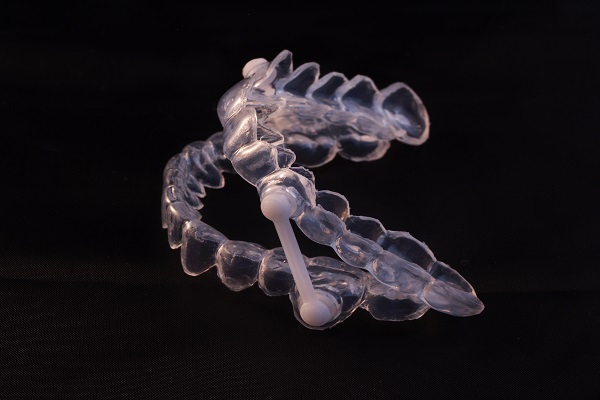How a General Dentist Can Help With Your Sleep Apnea Treatment

Sleep apnea is a common disorder that can leave you feeling tired and sleepy during the day. The condition leads to breathing coming to a stop during sleep, forcing your brain to wake up to restore breathing momentarily. People with the condition can have hundreds of these interruptions during sleep.
Obstructive sleep apnea is caused by your airway being obstructed during sleep, restricting the flow of air. Some of the issues that can lead to this include the tongue falling back into the airway, poor jaw positioning obstructing the airway, and abnormal tissue growths.
Sleep apnea might seem like a minor health issue, but that could not be further from the truth. It has been linked to serious physical and mental issues like depression, strokes, and hypertension. The condition significantly limits the afflicted’s quality of life and their academic, athletic, and work performance.
Getting sleep apnea treatment from a general dentist
Getting treatment for sleep apnea starts with a proper diagnosis being made. The patient’s airways, tongue, jaw, and teeth are carefully examined, looking for signs they might be obstructing the person’s breathing.
3D dental cone x-rays can also be used to search for signs of sleep apnea. Once the patient has been diagnosed with sleep apnea, a dentist might recommend an oral appliance to help open up their airway during sleep.
Oral appliances are customized devices that sometimes look like mouthguards. They are made from an impression of the patient’s teeth, so they fit snuggly. They can be an effective alternative to continuous positive airflow pressure (CPAP) therapy for patients with mild to moderate sleep apnea.
These devices are worn during sleep, and they help to keep the airway open. Wearing an oral appliance also helps to protect teeth against the effects of teeth grinding. The most common oral appliance used to address sleep apnea works by moving the wearer’s lower jaw forward and opening up their airway. Others work by preventing the tongue or other tissues from restricting the flow of air through the airways.
Some of the oral appliances a dentist can use to alleviate the effects of sleep apnea include:
1. Mandibular advancement device
These are the most commonly used appliance for sleep apnea, and it works by repositioning the patient’s jaw. It looks similar to a mouth guard worn during contact sports, and it snaps onto the lower and upper dental arches the same way.
Mandibular advancement devices come with metal hinges that push the lower jaw forward. Top-end devices allow patients – or their dentist – to control how much the device pushes the jaw forward.
2. Tongue retaining device
As the name implies, these devices work as splints and hold on to the wearer’s tongue, preventing it from falling back into the airway.
Restore quality sleep
An oral appliance can help you to alleviate the effects of obstructive sleep apnea, restoring your quality of life. Give us a call or visit our Southington clinic to set up an appointment with our dentist.
Request an appointment here: https://www.southingtonsmiles.com or call Weiss Advanced Dentistry PLLC at (860) 406-3181 for an appointment in our Southington office.
Check out what others are saying about our dental services on Google: Sleep Apnea in Southington, CT.
Related Posts
An estimated 22 million Americans have sleep apnea, and well over half of individuals with obstructive sleep apnea have a moderate to severe case. A general dentist studies and understands why sleep apnea occurs and can effectively treat it with oral appliances and other treatment methods. Sleep apnea is a common condition in which the airway…
Implant-supported dentures provide a stable, functional, and natural-looking option for individuals seeking an advanced tooth-replacement solution. These restorations rely on dental implants for support, offering improved comfort and performance compared to traditional removable dentures. The following guide will walk you through implant-supported dentures and what you can expect through the treatment process.Implant-supported dentures are prosthetic…
A broken or lost restoration can cause unexpected pain, stress, and difficulty eating or speaking, which is why many people contact an emergency dentist for quick relief. Whether a crown has fallen out or a filling has fractured, prompt attention helps prevent further damage, infection, or discomfort. Seeking help right away protects the surrounding teeth…
Teeth whitening works by applying a peroxide gel that lifts stains from enamel, the tooth’s outer layer. Custom trays hold the gel evenly against the teeth, promoting consistent shade change while limiting gel on the gums. As a general dentist, the focus stays on fit, concentration, and timing to help patients whiten gradually and comfortably.…
